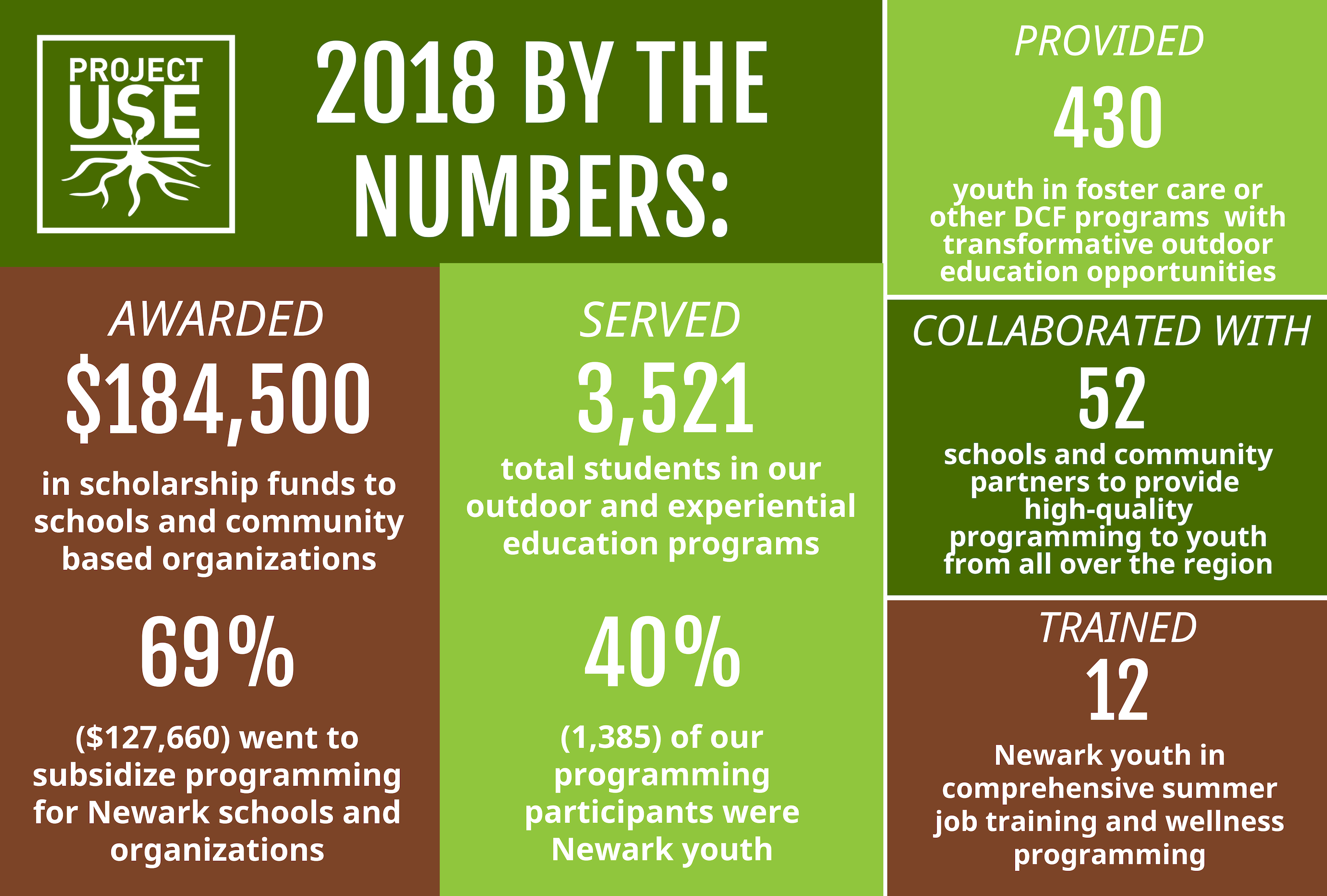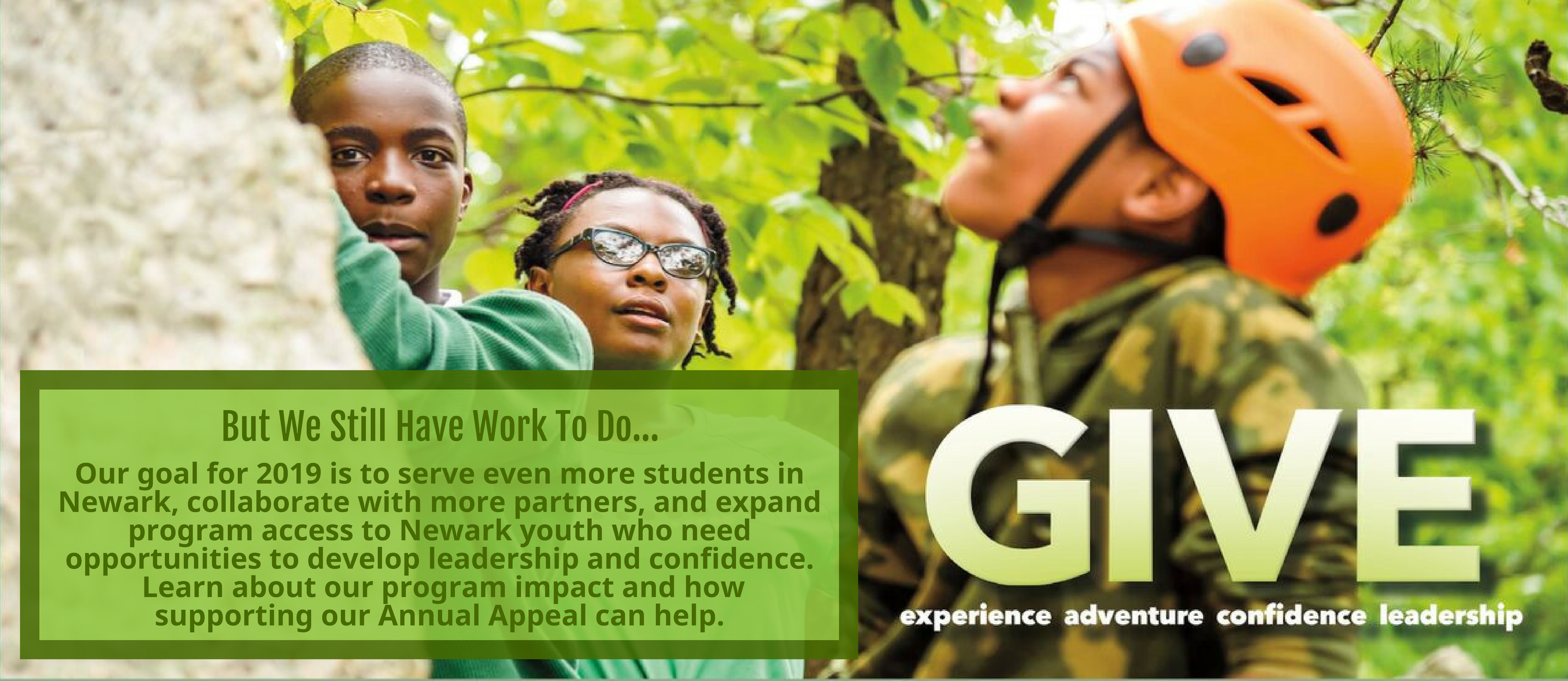Why Our Work Matters
Quality outdoor education programs like ours have been shown to have the following outcomes*:
- Significant gains in behavioral and attitude assessments & reduced negative characteristics like aggression
- Improved Academic Performance and ambition, significant value added to classroom learning
- Increased self-confidence, motivation, self-efficacy, and goal-setting
Outdoor and experiential education programs are beneficial and critical for all students. Our focus is on ensuring expanded access to these programs for Newark youth, who face numerous challenges:
- Educational Challenges: in 2017, the overall graduation rate for Newark students was 78.8%, compared to the statewide average of 90.5%.
- Economic Challenges: one in three Newark residents live below the poverty line.
- Access to Opportunities: although research shows that underserved urban youth benefit most from participating in quality experience-based programming, they often have the least access to these crucial opportunities.


*Sources
Mahoney, J.L., Lord, H., & Carryl, E. (2005). An ecological analysis of after-school program participation and the development of academic performance and motivational attributes for disadvantaged children. Child Development, 76(4), 811-825.
Catalano, R.F., Berglund, M.L., Ryan, J.A.M., Lonczak, H.S., & Hawkins, J.D. (2004). Positive youth development in the United States: research findings on evaluations of positive youth development programs. The Annals of the American Academy of Political and Social Science, 591(1), 98-124.
Dillon, J., Rickson, M., Teamey, K., Morris, M., Choi, M.Y., Sanders, D., & Benefield, P. (2006). The value of outdoor learning: Evidence from research in the UK and elsewhere. School Science Review, 87(320).
Neill, J.T. (2002, January). Meta-analytic research on the outcomes of outdoor education. In 6th Biennial Coalition for Education in the Outdoors Research Symposium, Bradford Woods, IN
![Project U.S.E. [urban suburban environments]](https://projectuse.org/wp-content/uploads/2018/06/ProjectUSE_RGB_Green.png)